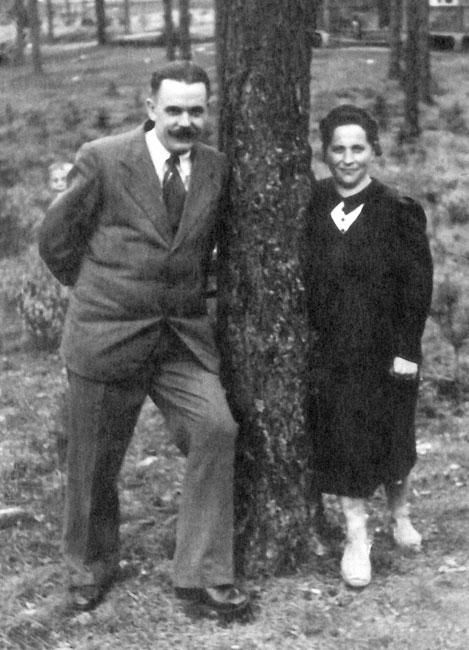

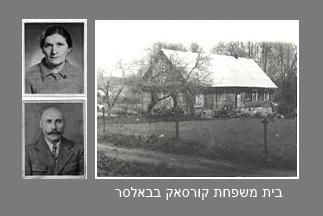
On the left: Wladyslawa and Tadeusz Korsak

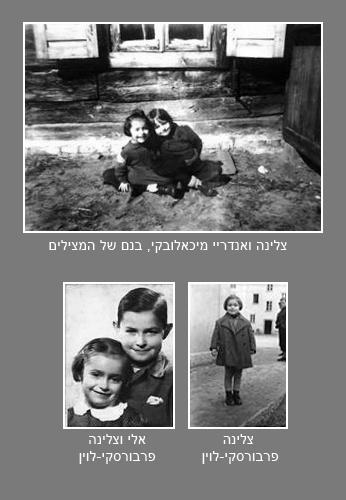

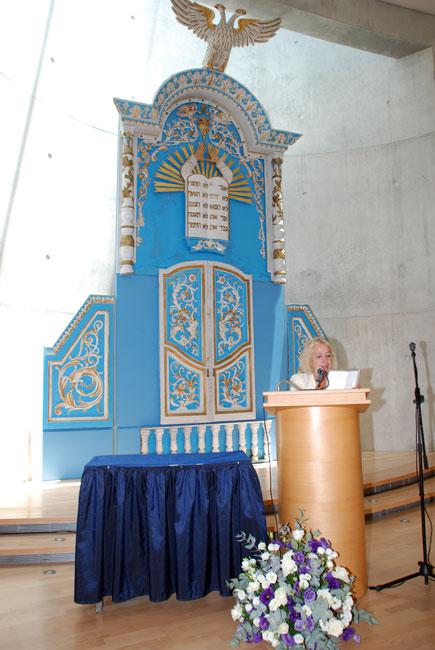

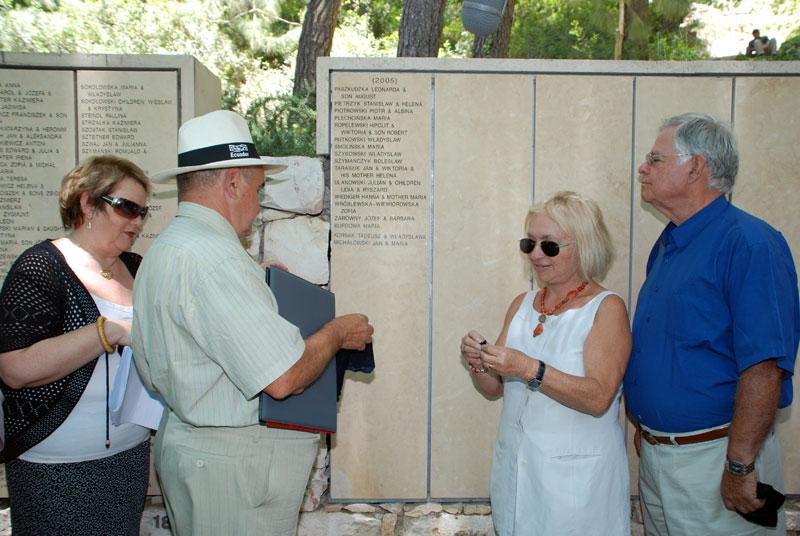

Sunday to Thursday: 09:00-17:00
Fridays and Holiday eves: 09:00-14:00
Yad Vashem is closed on Saturdays and all Jewish Holidays.
Entrance to the Holocaust History Museum is not permitted for children under the age of 10. Babies in strollers or carriers will not be permitted to enter.



On the left: Wladyslawa and Tadeusz Korsak







When the war broke out the Perewoski family – Shmuel, Dora and their two small children, Eli (Leszek) and Celina – lived in Vilna, where the family owned a lumber business. After the initial killings, Shmuel Perewoski realized the hopelessness of the situation and decided to smuggle his family out of the ghetto. Tadeusz Korsak, a pre-war business acquaintance, offered to help. The family escaped in early 1942. The first one to be taken out of the ghetto was the son, Eli. His father who was employed in forced labor outside the ghetto, took him along in the morning, concealing him among the files of workers marching to their work place. The children’s former nanny, a non-Jew, was waiting at a pre-appointed place in the street, and took Eli to a temporary hiding place. Soon his mother and sister joined him. Then the nanny took them in a horse-drawn cart and brought them to Korsak’s home in Balcer, a village that with post-war border changes is today in Belarus. Sometime later the Shmuel Perewoski escaped from the ghetto and arrived in Balcer. The reunited family lived in the basement of the Korsak home under the guise of a Polish family. Young Eli (nicknamed Leszek) even served in the church as altar boy.
The risk for both families – the Jews and their benefactors – was grave. In addition to the danger of being detected by the Germans, they were threatened by the enmity between ethnic groups in the region and political struggles between the Polish national underground and the Soviet oriented partisans. Shmuel Perewoski was to become the victim of these clashes. One day in the summer of 1943 he was taken by the Soviet partisans, and the following day his shot body was found in the fields. 8-year-old Eli, his mother and Tadeusz Korsak identified the body and secretly buried it. Many years later Eli tried to relocate the burial place, but in vain.
The neighbors had become suspicious of the family that was living in the Korsak home, and the situation was too precarious. Eli and his mother escaped to the forests and joined the partisans. Little Celina, who was three years old, stayed with Wladyslawa Korsak who promised to take good care of her until the war was over. However the Korsak family too became victim of the turbulent times. A few months after the murder of Perewoski, in October 1943, Tadeusz Korsak and his two daughters were murdered by the Soviet partisans. Wladyslawa, who had lost her entire family, took Celina and fled to her relatives, Jan and Maria Michalowski, who lived in a small village called Jerozolimka. Although the Michalowskis had five children of their own, they took in Celina and cared for her until liberation, when her mother and brother came to take her.
After the war Dora Perewoski and her two children immigrated to Israel. She remarried, and her husband adopted her son and daughter, who adopted his last name – Levin. Eli (Perewoski) Levin told Yad Vashem that his mother never talked about the Holocaust years and put all her energies into building a new life. Her children followed her example and for many years the family didn’t look back into the past. It was only after his mother's death and with advancing age, that Eli began the long journey of tracing his roots. He spent three years researching the past and attempting to put the pieces together. His attempt to find the people who had saved his life took him to Lithuania and Belarus. When he reached Balcer he recognized the Korsak house, that was still standing there, and found the grandson living in the place. The grandson then took him to Jerozolimka to the surviving relatives of Michalowski. They gave him a photo showing his sister Celina with their Michalowski son Andrzej. More than 50 years after the end of the war Eli had closed the circle.
In December 2006 Yad Vashem awarded the title of Righteous Among the Nations to Tadeusz & Wladyslawa Korsak and to Jan & Maria Michalowski. In June 2007 Andrezej Michalowski, Michalowski's son who was on the photo with Celina, and the grandson of the Korsak family came to Israel for the ceremony at Yad Vashem. They received the certificates of honor and medals and unveiled the names of their family members on the wall in the Garden of the Righteous. The ceremony was attended by the Eli and Celina and their families.

Thank you for registering to receive information from Yad Vashem.
You will receive periodic updates regarding recent events, publications and new initiatives.

"The work of Yad Vashem is critical and necessary to remind the world of the consequences of hate"
Paul Daly
#GivingTuesday
Donate to Educate Against Hate


Worldwide antisemitism is on the rise.
At Yad Vashem, we strive to make the world a better place by combating antisemitism through teacher training, international lectures and workshops and online courses.
We need you to partner with us in this vital mission to #EducateAgainstHate
The good news:
The Yad Vashem website had recently undergone a major upgrade!
The less good news:
The page you are looking for has apparently been moved.
We are therefore redirecting you to what we hope will be a useful landing page.
For any questions/clarifications/problems, please contact: webmaster@yadvashem.org.il
Press the X button to continue



